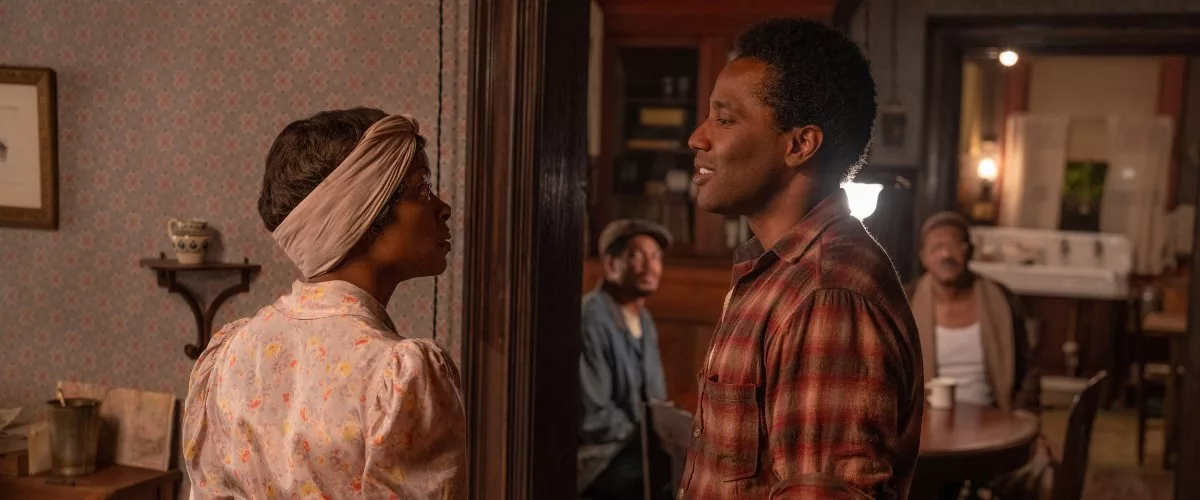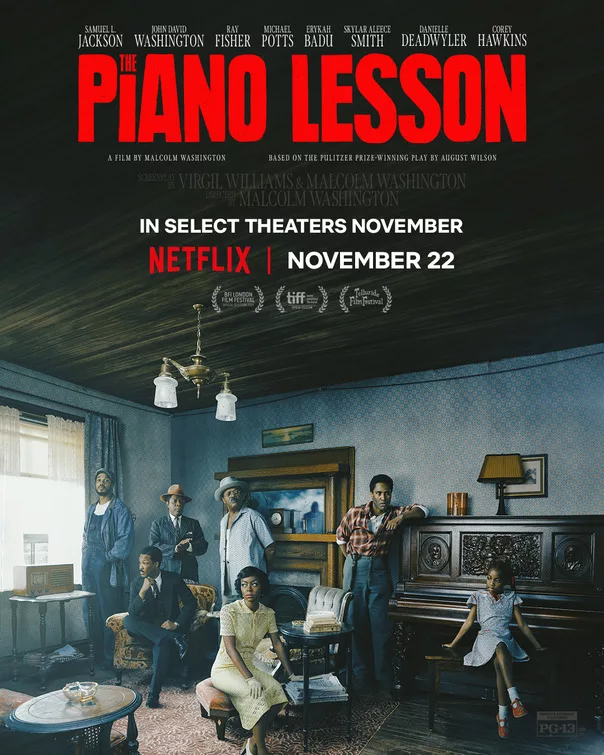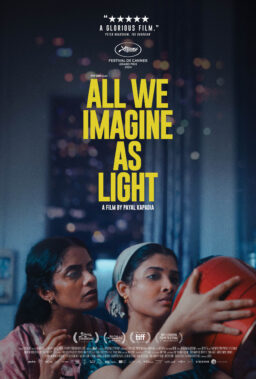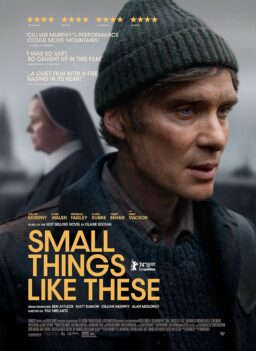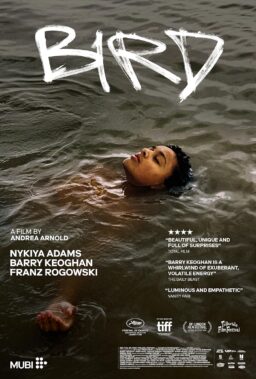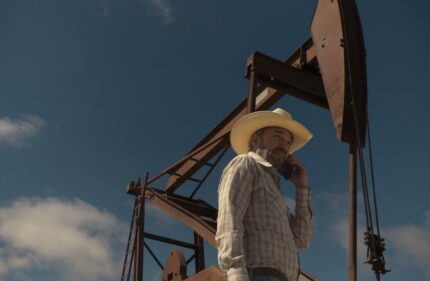"The Piano Lesson" is Malcolm Washington's feature film debut, a demanding adaptation of prolific playwright August Wilson's evocative play of the same name. Uniting with a star-studded trio – his brother John David Washington, Samuel L. Jackson, and Danielle Deadwyler – Washington's study of inheritances (trauma, wealth, and history) is a powerful portrayal of Black lineage in America.
The Charles Family is in possession of a generational heirloom, an upright piano engraved with the faces of their ancestors. The piano was originally stolen from the home of their former slave master, James Sutter (Jay Peterson), hoping to pass it down from generation to generation. Years later, in 1936, in the midst of the Great Depression, Boy Willie (Washington) is heading north from Mississippi to Pennsylvania with his friend, Lymon (a charmingly coy Ray Fisher), in the hopes of retrieving and selling the piano to buy his own land.
Standing in his way is his sister Berniece (Deadwyler), who owns the piano and vows never to sell it, but barely dares to utter a word of its history to her young daughter, let alone play it. As the siblings butt heads under the roof of their fairly ambivalent uncle Doaker (a wise, but familiarly sardonic Jackson), "The Piano Lesson" unfolds. The film seeks to coalesce Berniece and Boy Willie's familial conflict into a semblance of a resolution about what Black people should do with their history.
In this film, John David Washington is electric, full of galvanized spirit and ambition. His presence on screen borders on overstimulating, aptly becoming a foil to Berniece's perspective. His long-winded, colorful tirades and broad, energized gesturing feel like an orator in his element, charismatic as hell but ultimately disagreeably sermonizing to Berniece's stew-under-the-surface approach to her frustrations. Their figures couldn't be more juxtaposed, and Deadwyler's performance is equally affecting in its restraint, though Berniece is no less empowered than her brother. Deadwyler is tight, her neutral stance hardly ever taking up more space than her frame occupies. Her postural rigidity points to Berniece's repression as well as her righteousness.
The push and pull of Willie's threat to steal the piano and Berniece's insistence for it to remain rocks the spirit of the home, and Malcolm Washington welcomes this invitation of magical realism into the story with a deft hand. Hauntings of Sutter tempt further havoc upon the house, as his apparition manifests in doorways or when water floods the upper floor of Berniece's house, mostly to Berniece's religious eyes only (giving Boy Willie another reason to dismiss her). The central locale of the home is beautifully transformed by Washington and his ensemble cast from scenes of quiet hair-trigger tension to boastful unity in drunken song, showing all angles of reckoning with violent histories. Meanwhile, through it all, the piano stands firm and unmoving in the center of the home, looming like an almost obstinate reminder of its ghostly inescapability.
Washington handles this allegory without employing patronizing over-explanation. Berniece and Boy Willie carry indignance and suppression in their approaches to the past. While she intends to carry the weight of the past, shielding her daughter from the knowledge of their ancestral heartache, Boy Willie proudly attempts to act in pure spite of it without ever fully accepting the past for all that it is. Washington's film is composed out of empathy for all of its perspectives (whilst also giving space for equal refuting), encompassing how our confrontation with Black history roots itself differently in different bodies. In doing so, "The Piano Lesson" acknowledges that discussion and engagement must be the first step to resolution.
In theaters tomorrow. On Netflix on November 22nd.
